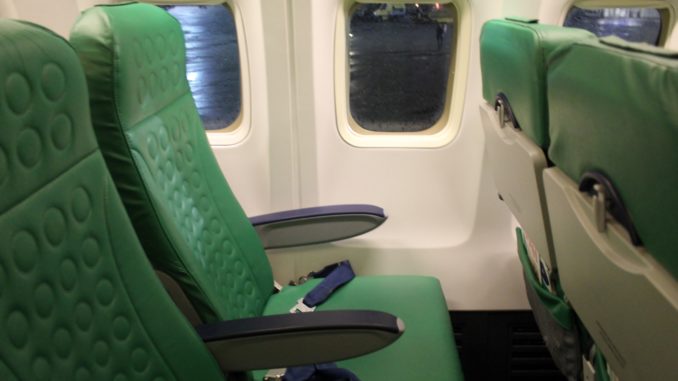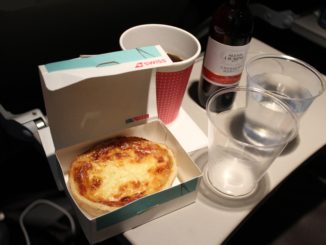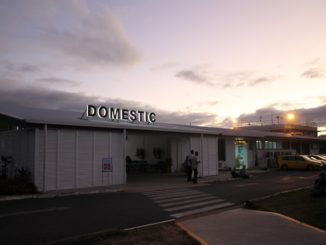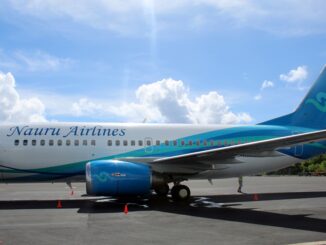
We are all slowly getting used to tighter legroom and thinner seats on shorthaul flights in economy class, and quite understandably when tickets cost less than they did 20 or 30 years, without taking the inflation into account. The airlines do what they can to squeeze more passengers inside their aircrafts while at the same time trying to reduce the weight to reduce the fuel burn.
But one airline which has really taken this very far is Dutch low-cost airline Transavia, and on the photo above you can see the result, the seat pitch on row 5 on one of their Boeing 737-800.
Although the seat pitch can vary slightly between different aircrafts and even between different rows on the same aircraft, this can only be described as incredibly tight. Even with a rather average height of 183 cm (6′0″) and a rather average body weight the knees were pressed very firmly against the seatback of the seat in front during the entire flight, and that is without the seat in front being reclined. The legs could hardly be moved while seated.
And there was no way of getting something from the bag under the seat, unless you have a very small purse or something similar. Basically if you did not take out whatever you may need during the flight at the same time as you sat down it will stay in your bag until you get off, or possibly until someone needs to get up for a toilet break. Or possibly if you have an aisle seat you may be able to get your bag out in the aisle to get whatever you need before sliding it back under the seat again.
Although you can surely survive in this seat for 90 minutes it would not be fun to be stuck there for several hours. And really, at some point in time the airline industry will probably need to take health issues into account when designing aircraft cabins. It can not be good for your body and for the blood circulation to sit in a seat so tight that you can not move your legs for several hours.





Be the first to comment